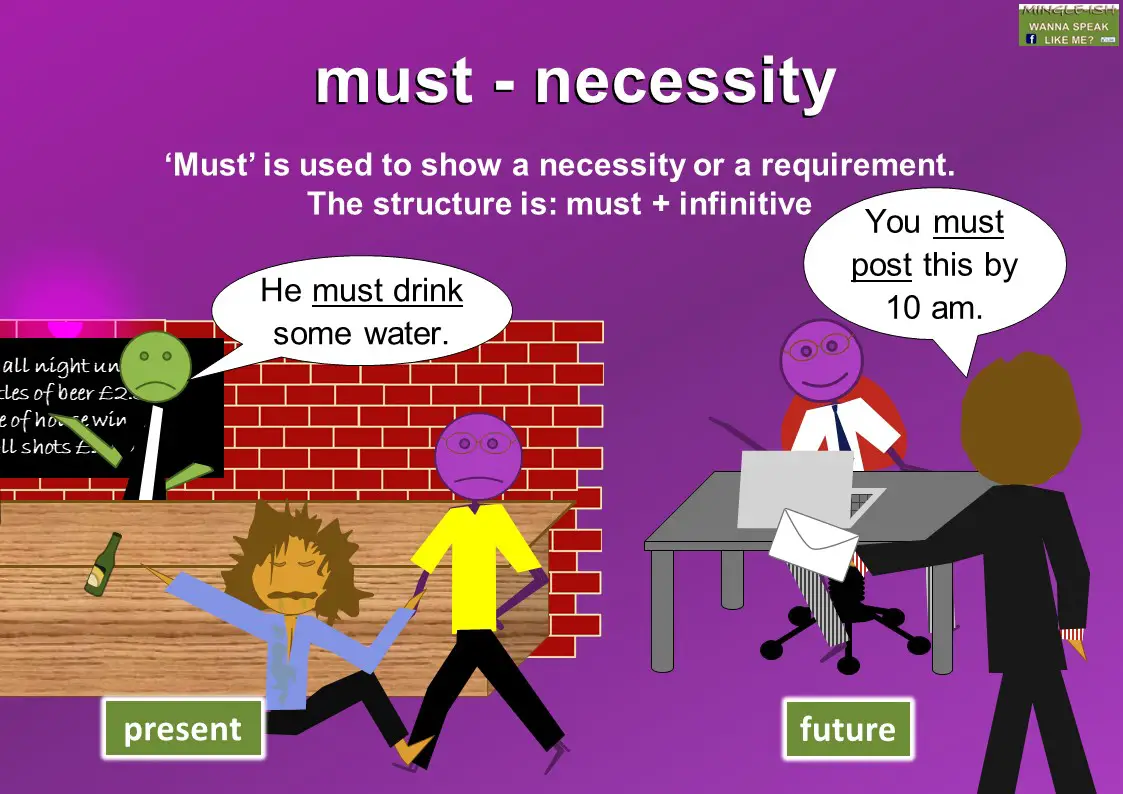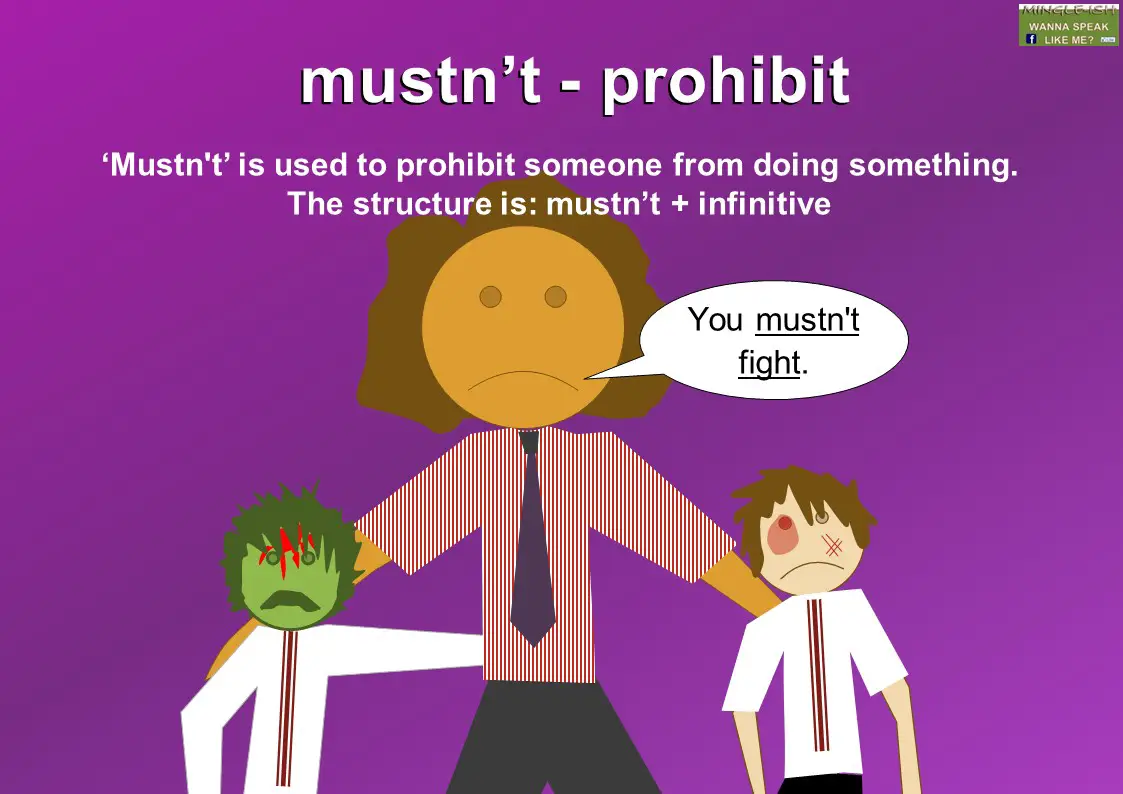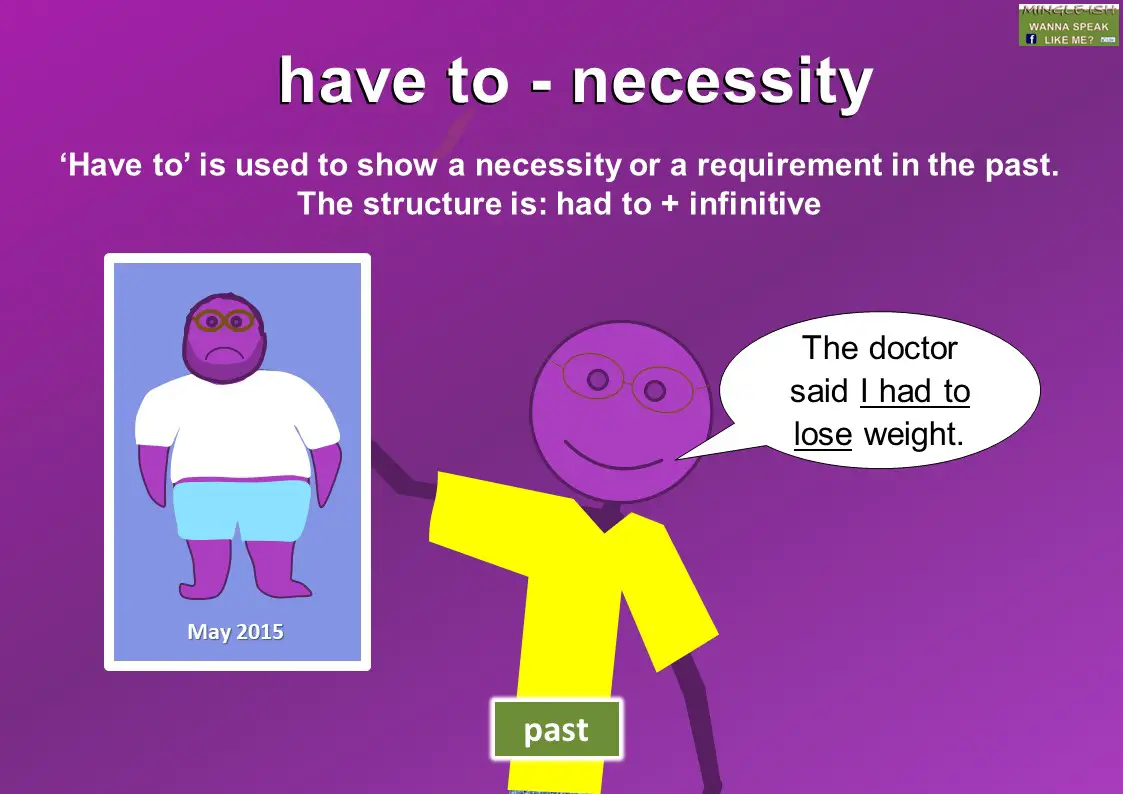CAN
Ability, doubt, astonishment, permission, polite, request.
MUST
Obligation, firm necessity, logical, conclusion, probability.
HAVE TO
Unwillingness, forced circumtances.
“CAN”
“CAN” is one of the most used modal verbs in English. “Can” is an auxiliary verb (modal auxiliary verb).
It can be used to express;
- Ability
- Possibility
- Permission
- Request
- Offer
General Structure of “CAN” in a Sentence
POSITIVE FORM (+) : Subject + CAN + Verb (first form of the verb).
NEGATIVE FORM (-) : Subject + CAN + NOT ( CAN’T ) + Verb (first form of the verb).
QUESTION FORM (?) : CAN+ Subject + Verb (first form of the verb).
Examples:
- I can play basketball. ( positive form )
- I can not ( can’t ) play basketball. ( negative form )
- Can I play basketball? ( question form )
Contraction for ” CAN NOT “;
can not –> can’t Ex: I can’t swim.
Using ” CAN “
1. It is used to express that someone is able to do something. (Present Ability)
Examples:
- I can speak four languages.
- She can drive a car.
- He can speak English fast.
- Fishes can swim.
2. It is used to express that something is possible. (General Possibility)
Examples:
- Alcohol can cause canser.
- They can stay with us when they come.
- You can buy tickets from the dealers.
3. It is used in a question, which is not a real question, to ask somebody to do something. We want somebody to do our request (in an informal way, especially between friends or family ). (Informal Request)
Examples:
- Can you make me coffee?
- Can you hand me the pen?
- Can I have some tea, please?
4. It is also used to ask or give permission for something. (Informal Permission)
Examples:
- Can I use your book, please? ( ask for permission )
- If you want, you can go to the park. ( give permission )
- Can I ask you some questions? ( ask for permission )
- You can drive my bike. ( give permission )
5. It is used in offers to help someone or to do something for someone. (Informal Offer)
Examples:
- Can I help you?
- If they like, I can carry some bags for you.
- There is nothing left in the fridge. Can I do some shopping for you?
Attention:
For ” CAN NOT”;
1. It is used in negative saying (when we are sure that something is not true or something is surprising).
Examples:
- That can’t be John. He is in America.
- It can’t be raining. The sun is shining and there are no rain clouds.
- You can’t be 50! You look young.
2. It is also used in negative saying (when something is forbidden or not allowed).
Examples:
- You can’t park the car there.
- They can’t wear jeans at work.
- You can’t go on without us.
"Must"
Here are the ways in which we use ‘must’ as a modal.
Take a look at the pictures below, you’ll find the function of ‘must’ as a modal and examples in everyday use.
- Present: we believe that something is true.
You have been studying the whole morning. You must be tired.
Cannot (can’t)
- Present: We are certain that something is NOT possible.
I saw him on the city center ten minutes ago so he cannot be home yet.
"HAVE TO"
Here are the ways in which we use ‘have to’ as a modal.
Take a look at the pictures below, you’ll find the function of ‘have to’ as a modal and examples in everyday use.
- CAN, CAN'T Click here or here










No hay comentarios:
Publicar un comentario